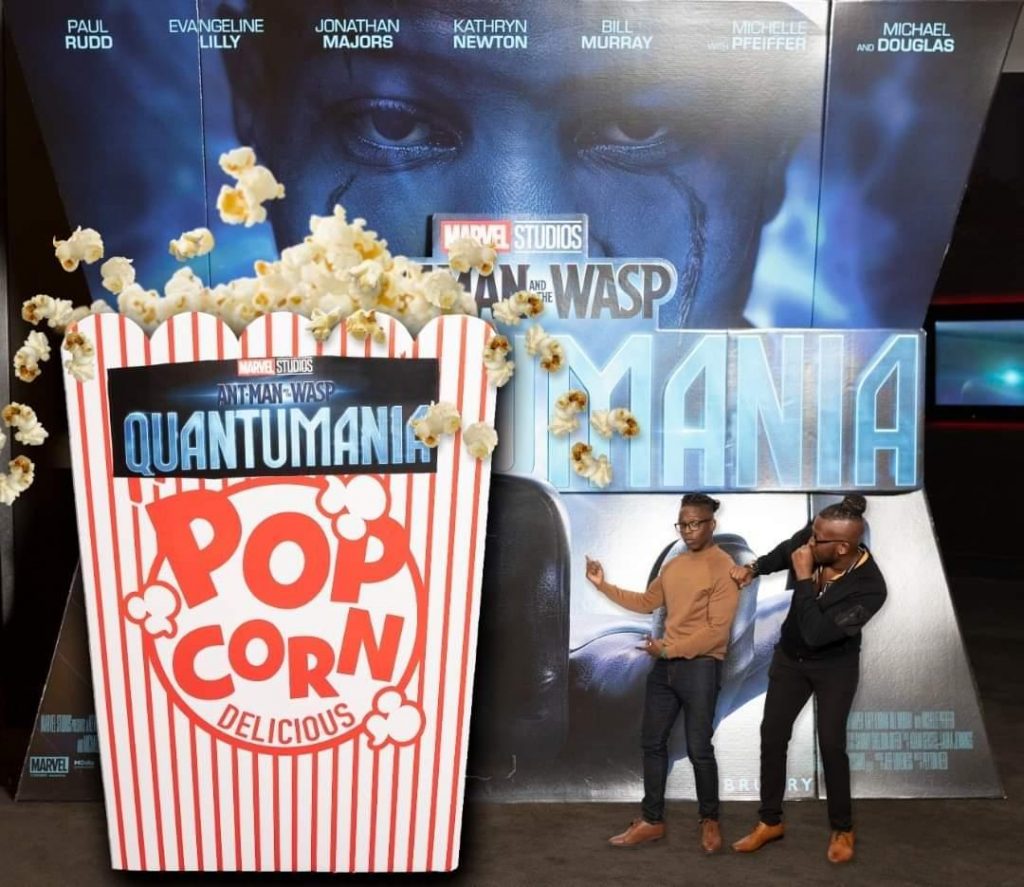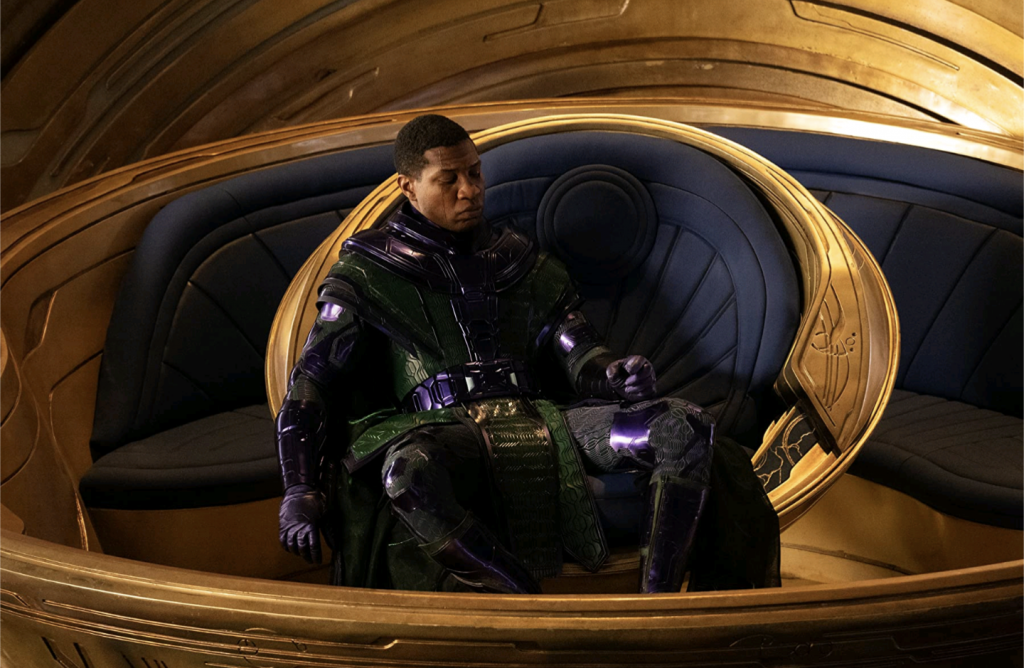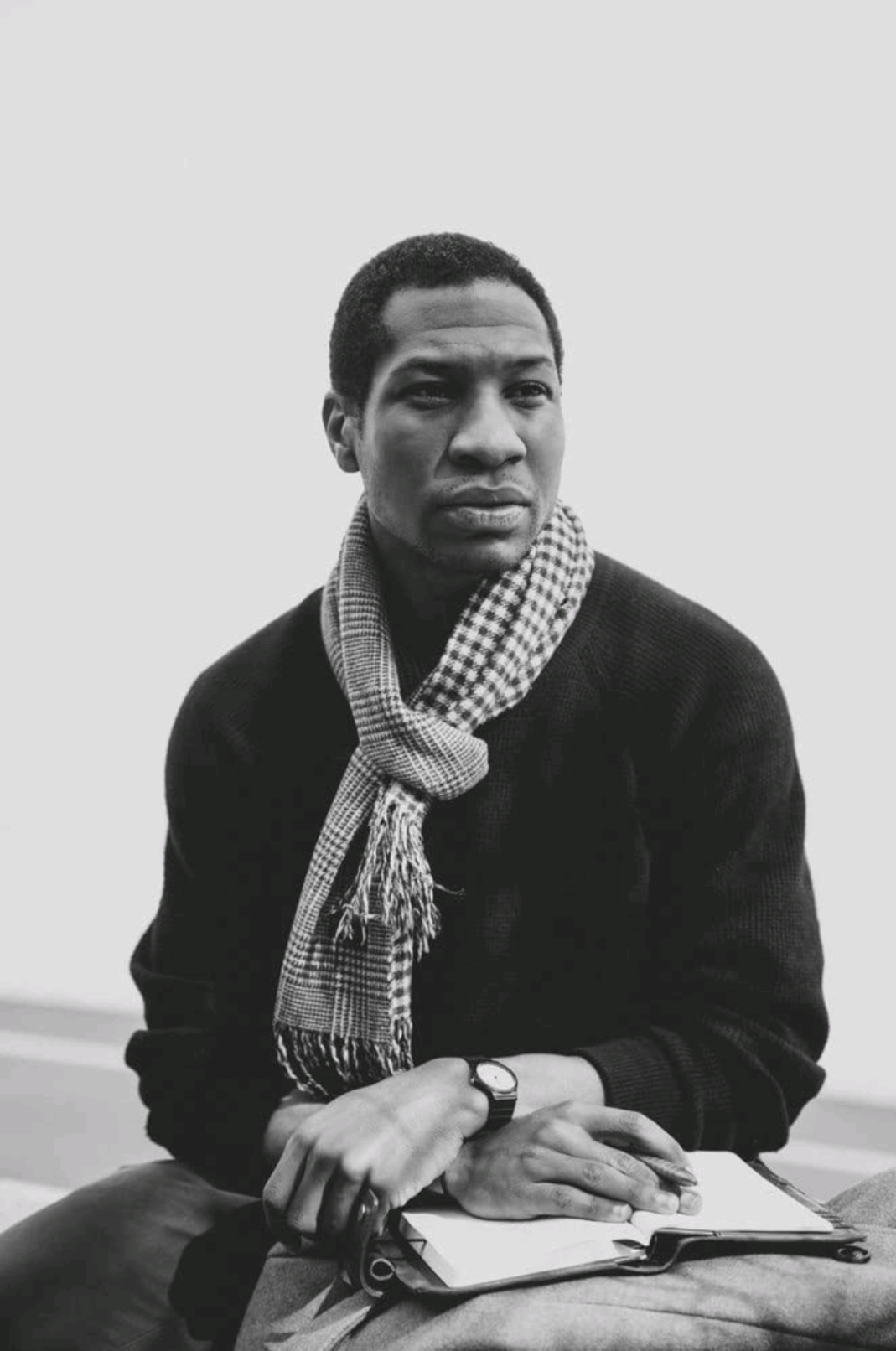Jonathan Majors’ Marvelous Approach to Character & Identity
By Pierre Gilson Jr.
Not only has Hollywood come to know the name Jonathan Majors, but so has the rest of the world. After his attention-grabbing performance as Atticus Freeman in HBO’s 2020 genre-bending series Lovecraft Country despite its cancellation after its first season, some would say that Majors is on an ascension. These statements, without a doubt, have something to do with his onscreen charm and the authenticity of the emotion he brings to every single role. This can be broken down as a genuineness that can even make a villainous portrayal, say, a Multiversal Technologically Savvy Time Warlord, someone you want to keep around. When it comes to the MCUs villain catalog, we’ve enjoyed some more than most. Michael B. Jordan’s Killmonger was a welcomed surprise. Norman Osborn’s return in Spiderman: No Way Home (2021) allowed for the Sam Raimi nostalgia to set in, and Elizabeth Olsen’s Scarlet Witch conversion to evil made the entry for more nuanced characters. However, if we are referring to what I will call Marvel’s “Phase Villains” then the highest mention must go to Thanos, played by award-winning actor Josh Brolin. Brolin set the bar incredibly high for any actor wanting to wreak havoc on the multiverse. Enter Hollywood’s most wanted, Jonathan Majors.
“Who is Kang?”
“Who I need to be…”
Jonathan Majors’ silver and big screen performances can be simply labeled as regal. This is noticeable in actors who have been in many theatre productions, for which he has credits in quite a few. As a viewer watching him in films like The Last Black Man in San Francisco (2019), The Harder They Fall (2021), and even Spike Lee’s Da 5 Bloods (2020); Majors always highlights the internal conflict within his characters in not only an empathetic way, but in a style that we can get the feeling as if these characters are working through their conflict in real-time. I never got the notion that his characters were weak, even when beaten. I like to believe the characters he portrays suffer with their heads held high. The late-Austrian neurologist Sigmund Freud explained three components that filmmakers use today. They are the id, ego, and super-ego. They all serve as components of human motivations, but the ego and super-ego are only needed for what is described here. When we look at the ego in film and in the real world, we see how people think about themselves and how they project it onto everyone else. Super-ego is based on community interactions in how the outside world affects our thought process. This further goes into how we feel when we either obey the “rules” given to us or choose to rebel. Two of his roles immediately come to mind. Well, they are the same role but also not the same role. I’m referring to the MCU’s variants.
“Do not speak while I’m in the room.” – Kang, The Conqueror
Now, I will do my best to keep this spoiler free! I repeat. I WILL DO MY BEST. No promises are guaranteed. I am currently fresh out of the theatre in sunny Los Angeles after watching Ant-Man and the Wasp: Qauntumania. It is a quality MCU film that hits most of its story beats and introduces the Quantum Realm in all its bizarreness. Besides more MCU action and adventure, fans, such as myself, came for the introduction of Phase 5’s multiversal threat, Kang, The Conqueror. Majors left us craving more Kang after his fantastic monologue in season one of Loki (2021) as He Who Remains. We saw a questionable antagonist who subverted our expectations with his sense of entitlement and humor. When He Who Remains meets Loki and Slyvie, he doesn’t present an intimidating demeanor but rather one that would cause someone to be cautious. Unpredictability is a powerful tool in an actor’s toolbox. It allows their roles to take on a new life which is an extension of the role they have already assumed. In Majors’ exposition about the multiverse, his purpose, and what is to come, he has a way of becoming the most grounded person in the room, which can also come off as being the most powerful.
Regarding characterization or character building, the best characters tend to be the ones that are hard to read by the audience or reader. That is one of Majors’ great attributes to his craft. He does not allow the world to dictate his interactions (super-ego) but instead will enable others to see his genuine authority for themselves (ego). It isn’t pretentious but an accurate statement of the characters he plays and the roles he accepts as of late.
“What’s coming?”
“Me.”
Kang, The Conqueror is a role I would never have seen coming from Majors but is a welcomed one in every detail. We get to know a villain whose complexity not only rivals Thanos but also takes his humanity into account. Kang is not an alien from another universe but a variant from another earth. A regular human being with base human emotions. Majors uses it to his advantage in every single scene. Unless you send me the issues, I do not believe that Kang had this much swagger in any rendition from script to screen. Majors’ version of Kang is a masterclass on creating an emotionally charged character. Every line of dialogue is uncompromising, discreet, and subtle. He captures a man of many words but who would instead use as little as none. That’s power. That is not only Majors’ Kang but his approach to many roles. If we were to look at every persona he has played, there are serious correlations to how his characters are emotionally charged through dialogue and honed facial expressions to punch up the emotional stakes that build these films. To say that Majors’ is not a force beyond worlds is a falsity. He’s only at his starting point, and I, for one, will watch with pen and pad in hand as a fan and a student of the craft.
Thank you, Misha Lightner for the invitation to the Ant-Man: Quantumania screening!







